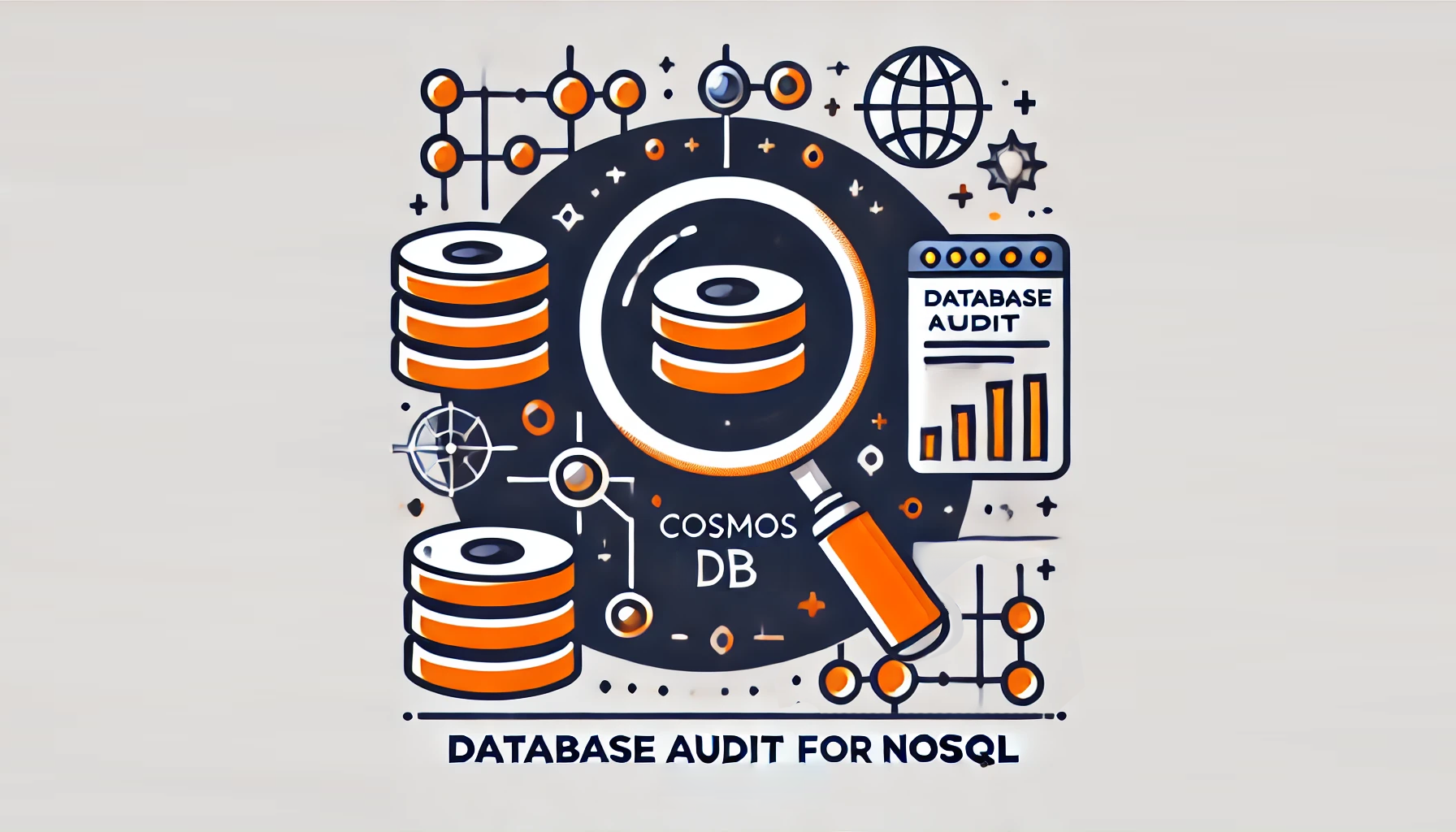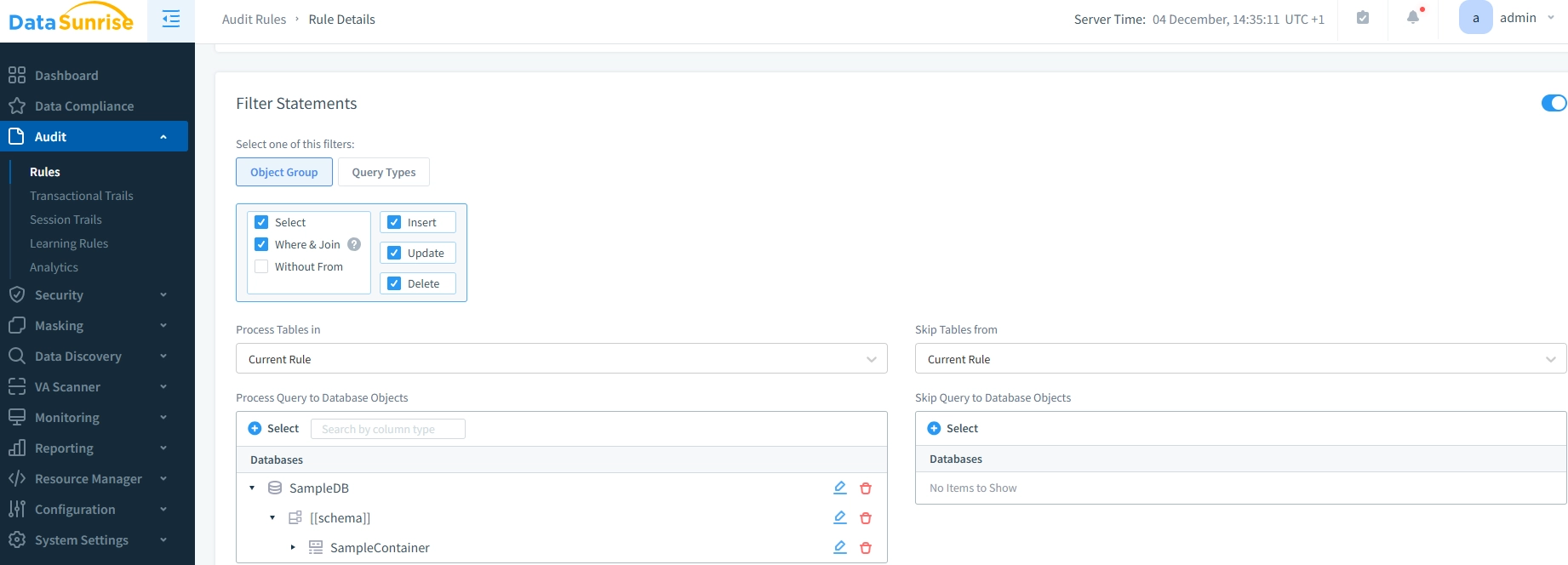
Database Audit for CosmosDB for NoSQL

Database Audit for CosmosDB for NoSQL has become increasingly critical in today’s cybersecurity landscape. Did you know that 62% of money-related incidents involved ransomware or extortion? The average loss per breach was $46,000. This striking statistic from recent cybersecurity reports highlights why robust database auditing isn’t just a technical requirement—it’s a critical business necessity. For organizations using Azure Cosmos DB, implementing comprehensive audit mechanisms helps prevent data breaches and ensures regulatory compliance while maintaining optimal database performance.
As organizations increasingly adopt NoSQL databases for their flexibility and scalability, the need for sophisticated audit mechanisms has grown exponentially. Azure Cosmos DB is Microsoft’s NoSQL database service. It is used by thousands of organizations around the world. This service can handle millions of requests every second. This massive scale makes effective auditing both challenging and crucial.
Traditional database auditing mainly tracked data changes. Today, modern auditing systems must monitor many interactions. This includes access patterns, query behaviors, and possible security threats. Let’s look at how to do effective auditing in CosmosDB for NoSQL. We will use different methods and tools. This will help keep your data secure and meet regulatory requirements.
Understanding CosmosDB for NoSQL
Azure CosmosDB for NoSQL is a globally distributed, multi-model NoSQL database service designed for mission-critical applications. It provides high availability and low latency. It also scales well and supports important NoSQL data models like document, graph, and key-value. For organizations working with sensitive or regulated data, audit capabilities are crucial in tracking access and ensuring compliance with data protection regulations.
In this context, auditing the CosmosDB database for NoSQL is important. A comprehensive Database Audit for CosmosDB for NoSQL helps organizations track and monitor activities like data access, changes, and possible security breaches. CosmosDB for NoSQL is a managed service. To implement auditing, you need both built-in database features and external tools. This combination helps ensure complete visibility.
Implementing Native Audit Features in CosmosDB for NoSQL
CosmosDB offers several ways to perform native database auditing through SQL-based features, views, and stored procedures. These tools help you monitor database activity. They can also find unusual behaviors or unauthorized access. This is important for keeping your data secure and intact.
1. SQL Language Features for Auditing
CosmosDB for NoSQL does not support traditional SQL queries for auditing like relational databases. However, you can use Azure’s SQL API for auditing. Specifically, querying system views and logs can help you track user interactions with the data.
For example, by using the Azure Cosmos DB Change Feed, you can automatically log changes to the database. This helps track who made changes and when. It also captures data that users add, change, or remove.
This query helps you track all documents changed after a certain time. It gives you insight into recent updates in the database:
SELECT * FROM c WHERE c._ts > <timestamp>
2. Stored Procedures for Auditing
Stored procedures in CosmosDB can be used to implement custom logic for auditing. For example, you could create a stored procedure to automatically log data changes or track the status of transactions. You can trigger stored procedures as part of a database operation, giving you full control over the auditing process.
Example stored procedure for logging data changes:
function logAuditEvent(operationType, data) {
var context = getContext();
var response = context.getResponse();
var document = {
operationType: operationType,
timestamp: new Date().toISOString(),
data: data
};
// Save the audit log
var collection = context.getCollection();
collection.createDocument(collection.getSelfLink(), document, function(err, documentCreated) {
if (err) throw new Error('Failed to create document: ' + err.message);
});
}This stored procedure logs each operation’s type (insert, update, delete) along with the affected data and a timestamp.
3. Views for Monitoring and Auditing
CosmosDB does not support traditional views. However, you can mimic this feature with materialized views. You can also create custom queries to get auditing information. These queries can pull from the system collections and logs, providing insight into database activities.
4. Using Azure CLI for Auditing
Azure CLI is another powerful tool that can help you with native database auditing. With the “az cosmosdb” command, you can query data and retrieve logs related to database activity. You can also use Azure Monitor and Azure Security Center to enable and manage auditing.
Azure CLI provides command-line tools for audit management:
# Enable auditing for CosmosDB account az cosmosdb update \ --name mycosmosdb \ --resource-group myresourcegroup \ --enable-analytical-storage true
Using Python for Native Database Auditing in CosmosDB for NoSQL
Python is a powerful programming language for interacting with databases and performing auditing tasks. With libraries like azure-cosmos, you can connect to your CosmosDB for NoSQL instance, fetch data, and audit activities. Here is an example of using Python to connect to a CosmosDB database. You can copy the data and perform an audit.
Step 1: Install the azure-cosmos Library
First, ensure that the Azure Cosmos SDK for Python is installed:
pip install azure-cosmos
Step 2: Connect to CosmosDB
You need to connect to your CosmosDB following this command:
from azure.cosmos import CosmosClient, PartitionKey # Initialize Cosmos client endpoint = "<your-cosmosdb-endpoint> "key = "<your-cosmosdb-key> "client = CosmosClient(endpoint, key) # Define the database and container database_name = "AuditDB" container_name = "AuditContainer" database = client.get_database_client(database_name) container = database.get_container_client(container_name)
Step 3: Copy Data for Auditing
You can copy data to an audit log container or another part of your database for auditing.
def copy_data_for_audit():
# Fetch data from the container
items = container.query_items(
query="SELECT * FROM c",
enable_cross_partition_query=True
)
# Log data into a new container
audit_container = database.get_container_client("AuditLogContainer")
for item in items:
# Insert data into audit container
audit_container.upsert_item(item)
print(f"Audit Log Created for Item: {item['id']}")
Step 4: Execute Auditing Function
To execute auditing function simply use this command:
copy_data_for_audit()
This Python code gets data from a CosmosDB container. It then puts this data into an audit log container. This process helps track changes in the database.
DataSunrise Integration and Benefits for CosmosDB for NoSQL
Native database auditing features are important, but tools like DataSunrise provide better options for auditing. This is especially true for sensitive data.
How to Create a DataSunrise Instance
Creating a DataSunrise instance involves installing and configuring the software to monitor your CosmosDB for NoSQL databases. After installation, you can set up dynamic database auditing. This feature lets you monitor database activity in real time and ensure compliance.
To begin using DataSunrise with your CosmosDB for NoSQL database, first deploy an instance using the Configuration menu.

Setting Up CosmosDB Audit Monitoring
To establish audit monitoring, take the following steps:
- Open the “Audit” tab
- Select “Rules” from the options
- Choose “Add New Rule”
- Configure your audit parameters – including the rule details, goals, permissions, and audit report scheduling
- Complete setup by saving and enabling the rule

Once configured, DataSunrise will begin tracking activity in your CosmosDB for NoSQL environment based on your specified parameters.

Benefits of DataSunrise for Auditing
DataSunrise provides a comprehensive security suite that helps manage sensitive data across your database environments. The tool enables centralized, uniform control over all masking rules, ensuring compliance with regulations like GDPR or HIPAA. With its intuitive dashboard, administrators can track audit logs and identify potential security risks quickly and efficiently.
DataSunrise’s security suite offers several advantages:
- Centralized management of audit rules
- Real-time monitoring and alerts
- Comprehensive audit trails
- Automated compliance reporting
- Advanced threat detection
Best Practices for Database Auditing for CosmosDB for NoSQL
1. Regular Audit Reviews
Establish systematic review cycles for audit logs and reports. Daily checks should focus on critical security events and anomalies. Weekly reviews should examine access patterns and potential security breaches.
Monthly assessments should evaluate compliance status and identify trending issues. Document all findings and create action plans for addressing discovered issues. Set up automated tools to flag suspicious activities for immediate review.
2. Automated Alerting for Suspicious Activities
Implement comprehensive alerting systems that monitor for unusual patterns. Configure alerts for multiple failed login attempts, unexpected data access patterns, and unusual query volumes. Set up notification systems for after-hours database access or modifications to sensitive data.
Use machine learning algorithms to detect anomalous behavior patterns. Establish clear escalation procedures for different types of alerts.
3. Proper Documentation of Audit Procedures
Create detailed documentation covering all aspects of the audit process. Include step-by-step guides for configuring audit settings, reviewing logs, and responding to security incidents.
Maintain updated network diagrams showing audit log collection points. Document the rationale behind audit configuration choices. Keep records of all changes to audit procedures and configurations. Create clear procedures for handling audit findings.
4. Retention Policies for Audit Logs
Define comprehensive retention policies based on compliance requirements and business needs. Implement automated archiving processes for older audit logs. Establish secure storage solutions for retained audit data.
Create procedures for log rotation and cleanup. Back up audit logs regularly and store them in multiple locations. Implement version control for audit logs to prevent tampering.
5. Regular Testing of Audit Mechanisms
Conduct periodic testing of all audit components to ensure proper functioning. Perform regular validation of audit log completeness and accuracy. Test alert mechanisms to confirm proper notification delivery. Verify that audit logs capture all required information.
Conduct periodic audits of the audit system itself. Test disaster recovery procedures for audit systems.
6. Use Third-Party Solutions like DataSunrise
When implementing Database Audit for CosmosDB for NoSQL, organizations should consider both native tools and third-party solutions like DataSunrise to enhance native audit capabilities. Configure real-time monitoring features to track database activities and detect anomalies instantly. Set up automated compliance reporting to streamline regulatory requirements. Integrate the platform with existing SIEM systems for unified security monitoring.
Conclusion
Database auditing for CosmosDB for NoSQL is crucial for organizations handling sensitive data. The future of Database Audit for CosmosDB for NoSQL lies in automated, AI-driven monitoring systems. CosmosDB offers tools like SQL API, views, stored procedures, and Azure CLI for auditing. However, using Python for automation can improve your auditing abilities. For a more comprehensive approach, DataSunrise’s flexible security suite offers advanced auditing and compliance features to ensure data integrity and privacy.
To learn how DataSunrise can help your organization with database auditing and security, visit our website. You can also schedule an online demo.
